Don't miss your chance to invest in 'Fabiola'!
Visit our crowd-funding page for our new production, "Fabiola"!
- Home
- Movies About Roman History
- Masculine Fabiola Characters
The Fall Of The Roman Empire Was Brought About By The Depravity Of The People. Here's A Sampling Of The Good As Well As The Bad Men Living In This Time.
There are so many interesting times found throughout history and the fall of the Roman Empire's one of them. Of course this fall took many years to come about, and we really want to focus on the fourth century AD as presented in Cardinal Wiseman's novel, FABIOLA.
The characters in FABIOLA show a great variety of men living in this time: the good, the bad, and the ugly. And now, right now, Industrious Family Films is seeking actors to fill the roles in the upcoming film FABIOLA. Read all about these characters to help you decide if you want to apply below.
Please know that we are currently involved in an online Catholic acting class and would highly encourage you to join us if you wish to get a role in Fabiola.
To apply to the open casting calls, visit our casting page...
The Good And The Bad Main Characters That Witness This Last Chapter Of The Fall Of The Roman Empire
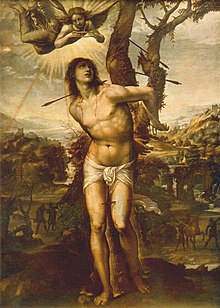
Sebastian - The trusted Roman tribune of Emperor Maximian. Sebastian shows that every true Christian is also a true patriot.
Sebastian's greatest desire is to meet martyrdom. But he does not die at his original execution. Instead, he is let to live due to a bargain made between Fabiola and his executioner.
Disappointed, Sebastian must return again and beg once more for martyrdom. Thus, he receives a double martyrdom.
Continue reading a more in depth character description here...
Fulvius - The new star of pagan Roman society. From Syria, this young man has come to Rome for the express purpose of hunting the Christians down and turning them in for the raw joy of gold in his pockets.
He is described as, "young, almost effeminate in look, dressed with most elaborate elegance, with brilliant rings on every finger, and jewels in his dress, affected in his speech, which had a slightly foreign accent, overstrained in his courtesy of manners, but apparently good-natured and obliging."
Fulvius plans to work with Corvinus to find and catch as many wealthy Christians as they can for the wealth it will bring them. But Fulvius is about to experience a twist of fates before the end of the film.
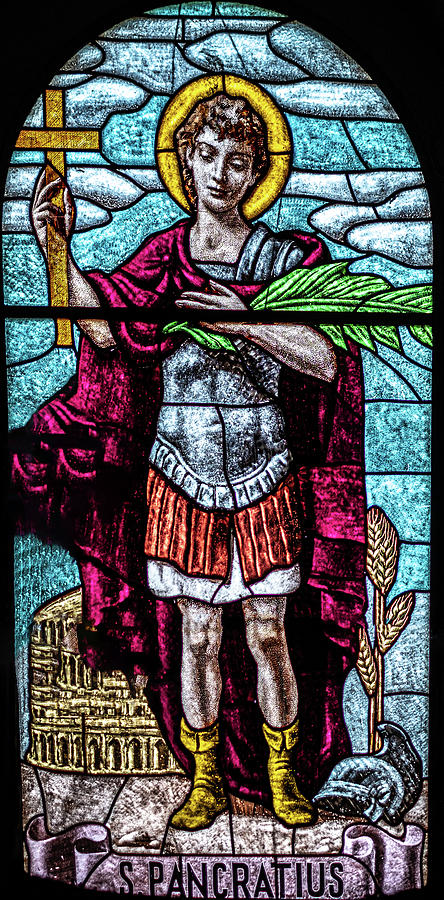
Pancratius - The only son of Lucina and Quintinus. A generous and noble boy, Pancratius looks up to Sebastian much like an older brother and as his role model.
As the son of a martyr, Pancratius longs for the day when he, too, can give his life for the Faith.
When Pancratius is captured by Corvinus, who hates him with a passion, his day finally arrives and he is able to meet his martyrdom.
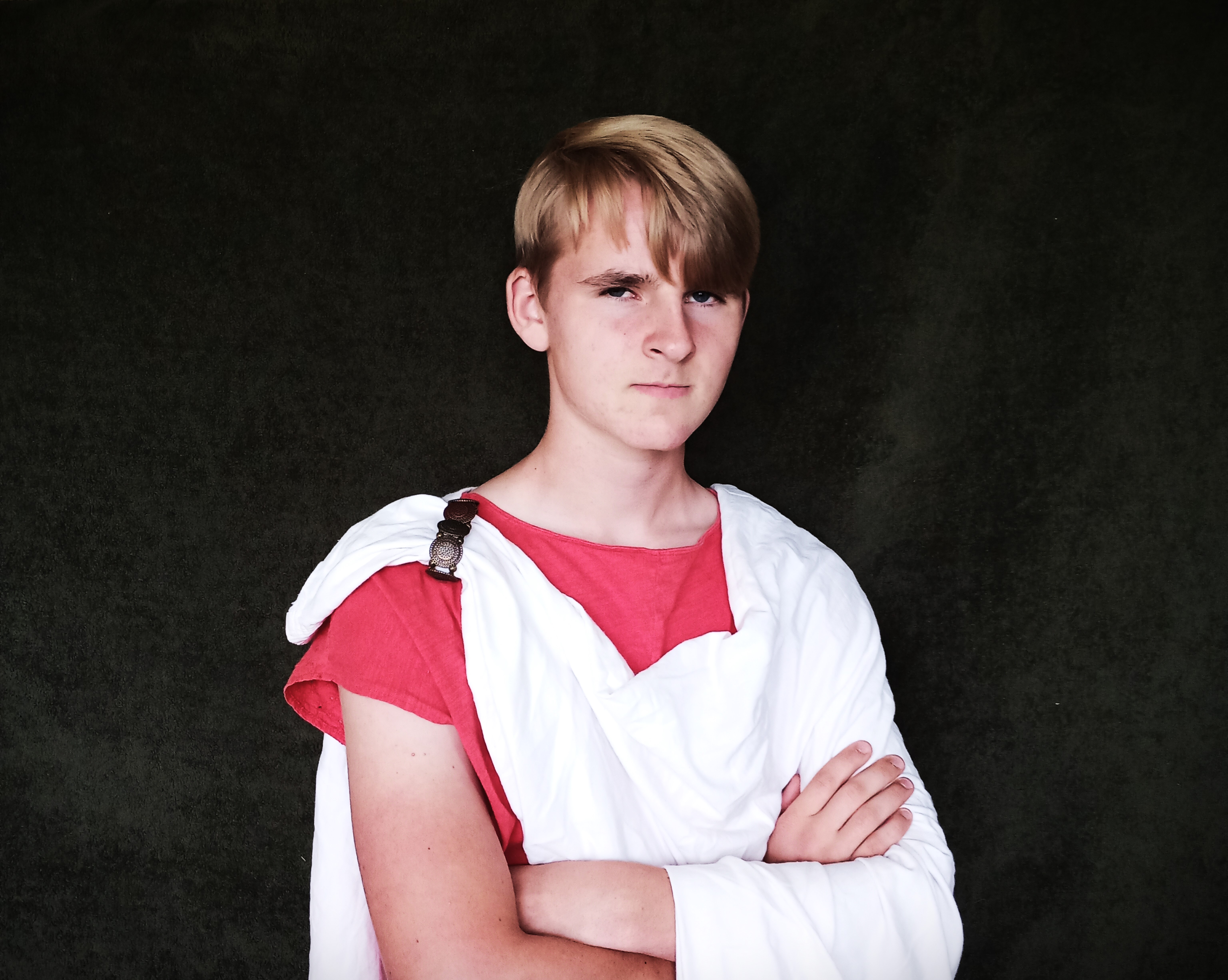 Nathan has been casted as Corvinus.
Nathan has been casted as Corvinus.Corvinus - Corvinus is the son of the prefect of Rome, Tertullus. One of his express purposes of life is to hunt Pancratius down and kill him. Another goal of his is to win and marry Fabiola for her inheritance.
This character is described as, "without taste for anything refined, or ability for learning, he united in himself a certain amount of animal courage and strength, and a considerable measure of low cunning. He had never experienced in himself a generous feeling, and he had never curbed an evil passion. No one had ever offended him whom he did not hate, and pursue with vengeance."
Corvinus does not repent, but dies a hardened sinner.
Medium Roles
Calpurnius - The pagan priest. Calpurnius is a very pompous and arrogant fellow who thinks he knows all about the Christians and is annoyed with anyone who appears to know more than he.
In a large way, it was the greed of men like Calpurnius who assisted in the fall of the Roman Empire because they were jealous of Christianity and tired of the naturally principled life that the Romans led.
Quadratus - Sebastian's Christian centurion. Quadratus is a large man who is always there to settle any trouble Sebastian has, and settle it quickly with his fists.
Quadratus confesses his Christianity the same time Sebastian does and is killed on the spot by one of his fellow soldiers.
Torquatus - a newly converted Christian. Torquatus begins by being overly zealous, but falls immediately when tempted. Fulvius sees right through him and knows exactly how to manage him.
With Torquatus' help, Fulvius is able to make great strides toward his goal of assisting in the eradication of the Christians from the Empire.
Through Torquatus' betrayal, the pope, many of the priests and Caecilia are martyred.
At a later time in the story, Torquatus finds forgiveness and spends the rest of his life doing penance for his weakness during the persecutions.
Severus - Diogenes' son. Severus is a melancholy man like his father and takes everything very seriously. He helps their father dig the tombs of the cemetery.
Always a skeptic, it is Severus who sees Torquatus for what he is and is able to warn the others, but not before the harm is done.
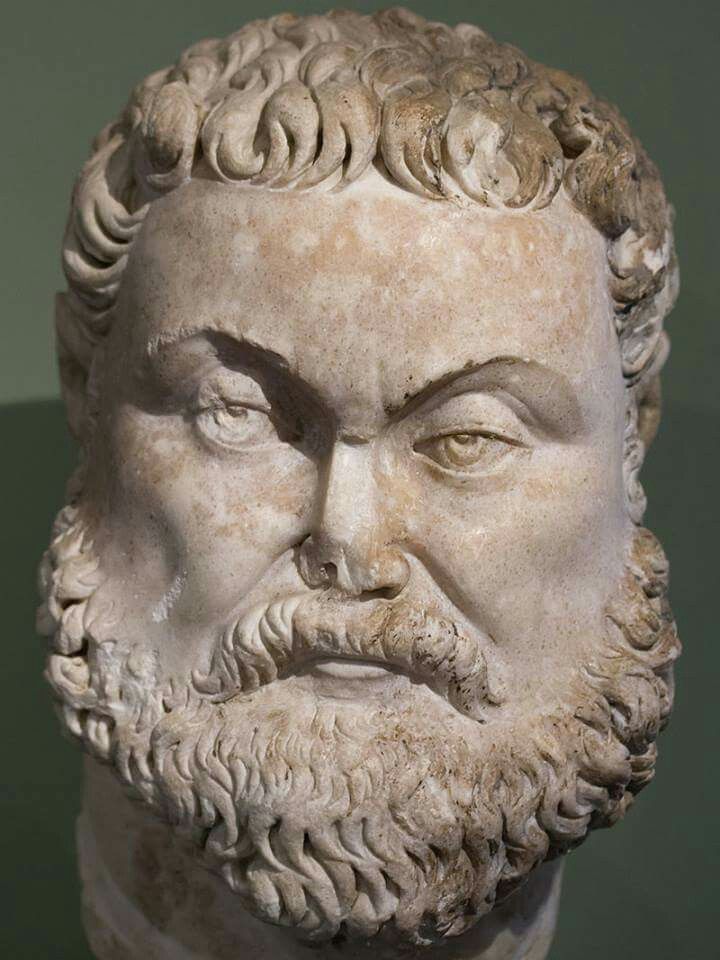
Emperor Maximian - "divine" emperor of the Western half of the Empire. A jealous man, Maximian views the Christians as a threat to his empire because he believes that their devotion to their religion competes with their devotion to Rome.
Accordingly, Maximian has launched a great persecution against the Christians where he enjoys watching them be tortured as well as in the arena against the wild beasts.
Maximian is described as, "Covetous to meanness, and spendthrift to recklessness, without restraint of any passion, without sense of justice, or feeling of humanity, this monster had never ceased to oppress, persecute, and slay whoever stood in his way.
Gigantic in frame, with the well-known features of his race (Serbian), with the hair on his head and face more yellow than red, shaggy and wild, like tufts of straw, with eyes restlessly rolling in a compound expression of suspicion, prolifigancy, and ferocity."
Coming in at the tail end of the fall of the Roman Empire, Maximian is the last emperor before Constantine arrives at the end of the mini-series.
Proculus - Much like Fabius, Proculus is a pagan who is mostly good intentioned. He takes life for its face value, loves parties and feasts, and merely dislikes the Christians because he knows so little about them.
Like all the pagans in Rome, he has heard enough lies about the Christians to think that they weaken the Empire, and he is happy to support their eradication from Rome.
Small Roles
Fabius - Fabiola's father. A simple-minded man, Fabius is happy to take life for what its worth. He sees things in a purely temporal light, like many of the men who assisted in the fall of the Roman Empire. Fabius' joy of life is found in gossip, feasts, and revelry.
Since he is not a philosopher at all, Fabiola more regularly turns to Syra and Agnes for guidance. Fabius is described as, "a true specimen of an easy-going Roman, who was determined thoroughly to enjoy this life."
Eurotas - Fulvius' apparent servant who is also from the East and is very devoted to Fulvius. Eurotas is secretly just as wicked, if not more wicked than, Fulvius and supports him in all his schemes. He and Fulvius share many secrets from the past, but Eurotas has a surprising secret all his own which he reveals at the end of the story.
When he and Fulvius have to flee Rome, Eurotas accidentally kills himself in an attempt to kill Fulvius.
Diogenes - The head of the excavators of the catacombs. Diogenes is a melancholy man described as being, "tall and broad-shouldered, as if accustomed to bear burdens...His hair was silver, and hung down at the sides of a large massive head; his features were strongly marked in deep melancholy lines, and though the expression of his countenance was calm, it was solemnly sad. He looked like one who had lived much among the dead and was happiest in their company."
Chromatius - A Roman ex-prefect turned Christian. As a man of great feeling, Chromatius feels his past sins deeply and now gives everything he can to the Church in reparation. He offers his home, the Villa of the Palms, as a place of instruction to the converts and raises palm trees in memory of the martyrs.
Chromatius is converted mainly through his wisdom. He knows that he is witnessing the fall of the Roman Empire. He also knows that there must be more beyond this life if men can be corrupted and entire empires crumble. This leads him to the Faith.
He is an old friend of Fabiola's and strongly encourages her to study the works of Christianity to see if popular opinion is true about their beliefs. Fabiola respects Chromatius as a philosopher and his suggestion makes an impression on her.
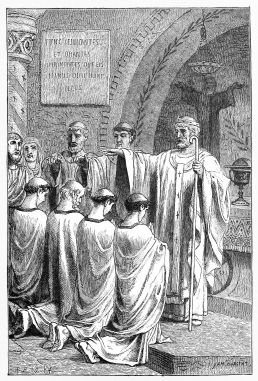
Dionysius - The priest that also acts as a doctor to the Christians.This allows him to be summoned quickly to a deathbed to administer both physical and spiritual aid.
Dionysius is the priest who baptizes and instructs Fabiola and is seen many places throughout the story.
Tibertius - The deacon of a particular region of Rome. In this film, the deacons are in charge of the organization of Church events. Tibertius is met at an event at Agnes' house were Pancratius' fortune is being distributed to the poor.
Tertullus - Prefect of the city and father of Corvinus. Tertullus appears at many of the tortures and executions of the martyrs throughout the story and has taught his son to love watching other people suffer.
Quintinus - husband of Lucina and father of Pancratius. The opening of the mini-series starts with the execution of Quintinus. This is a very important role because this execution sets the tone for the entire mini-series.
After the fall of the Roman Empire, it was important to rebuild what was lost and the Faith of the martyrs helped lay the foundation for the new empire.
Help Tell This Story From The Fall Of The Holy Roman Empire. We Are Seeking To Fill All Roles Now!
All roles are now available. If any of the roles on this page appeal to you, please contact us and ask about our acting class.
We are currently seeking actors from all ages and backgrounds. Experience is not required to apply.
So, please, join us by clicking the image below!
Subscribe To Our FREE Email Newsletter:
Awards:


#RebuildChristianArt Blog
An aid for families encouraging the reconstruction of the social fabric by sparking interest in Christian art and culture. Find beautiful novels, films, music, food and customs.
What's New At The Studio
-
Stream Catholic Christmas Films the Whole Family Will Love
Dec 18, 25 09:00 AM
-
It’s The Small Christmas Traditions That Matter Most
Dec 17, 25 09:00 AM
-
See You At Our Christmas Special?
Dec 16, 25 09:00 AM










